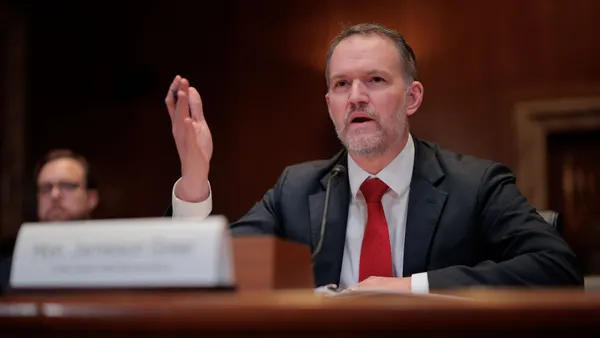Dive Brief:
- The speaker of the House of Commons in the British Parliament, John Bercow, said Prime Minister Theresa May cannot bring her Brexit legislation up for a vote unless it is "substantially" different than the previous versions that have failed. May's Brexit agreement has been voted on twice in Parliament, failing both times, most recently in a 391 to 242 vote last week.
- "What the government cannot legitimately do is resubmit to the House the same proposition or substantially the same proposition as that of last week, which was rejected by 149 votes," Bercow said, according to video from the BBC.
- The government's Brexit Secretary Stephen Barclay said the proposal could still come up for a third vote next week after May meets with other leaders of the European Union this Thursday and Friday, according to the BBC. May will ask for an extension to the Brexit deadline during this meeting.
Dive Insight:
Weeks continue to go by without any clear answer as to how the U.K. plans to move forward with the process of separating itself from the EU.
This lack of clarity has led the British Chambers of Commerce (BCC) to downgrade its growth expectation for the U.K. economy. It is forecasting growth of 1.2% for 2019, down from the original projection of 1.3%. The new forecast still assumes the U.K. avoids a "messy and disorderly exit from the EU."
The BCC expects business investment to drop by 1% — bringing it to its lowest levels since the recession a decade ago if the forecast is accurate.
The decision to lower the expectations was led by a lack of business investment and lower trade resulting from Brexit uncertainty. In fact, the BCC expects net trade to have a negative impact on GDP growth during the forecast period; partly due to Brexit, but also as a result of weaker global trade and overall trade tensions.
"It is clear that political inaction has already had economic consequences, with many firms hitting the brakes on investment and recruitment decisions as a result of ongoing uncertainty," Director General of the BCC Adam Marshall said in a statement. "Worse still, some companies have moved investment and growth plans as part of their contingency preparations. Some of this investment may never come back to the UK."














